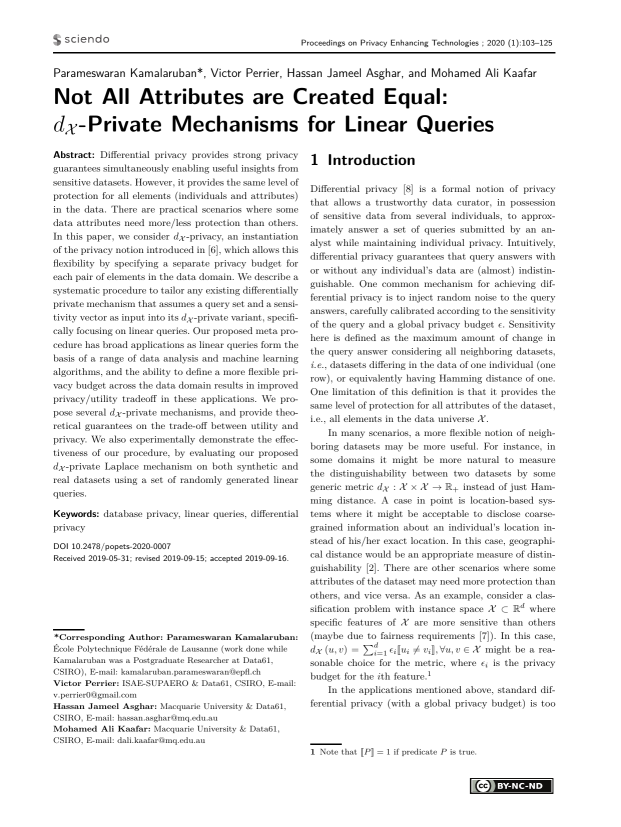Not All Attributes are Created Equal: dX -Private Mechanisms for Linear Queries
Authors: Parameswaran Kamalaruban (École Polytechnique Fédérale de Lausanne (work done while Kamalaruban was a Postgraduate Researcher at Data61, CSIRO)), Victor Perrier (ISAE-SUPAERO & Data61, CSIRO), Hassan Jameel Asghar (Macquarie University & Data61, CSIRO), Mohamed Ali Kaafar (Macquarie University & Data61, CSIRO)
Volume: 2020
Issue: 1
Pages: 103–125
DOI: https://doi.org/10.2478/popets-2020-0007
Abstract: Differential privacy provides strong privacy guarantees simultaneously enabling useful insights from sensitive datasets. However, it provides the same level of protection for all elements (individuals and attributes) in the data. There are practical scenarios where some data attributes need more/less protection than others. In this paper, we consider dX -privacy, an instantiation of the privacy notion introduced in [6], which allows this flexibility by specifying a separate privacy budget for each pair of elements in the data domain. We describe a systematic procedure to tailor any existing differentially private mechanism that assumes a query set and a sensitivity vector as input into its dX -private variant, specifically focusing on linear queries. Our proposed meta procedure has broad applications as linear queries form the basis of a range of data analysis and machine learning algorithms, and the ability to define a more flexible privacy budget across the data domain results in improved privacy/utility tradeoff in these applications. We propose several dX -private mechanisms, and provide theoretical guarantees on the trade-off between utility and privacy. We also experimentally demonstrate the effectiveness of our procedure, by evaluating our proposed dX -private Laplace mechanism on both synthetic and real datasets using a set of randomly generated linear queries.
Keywords: database privacy, linear queries, differential privacy
Copyright in PoPETs articles are held by their authors. This article is published under a Creative Commons Attribution-NonCommercial-NoDerivs 3.0 license.

